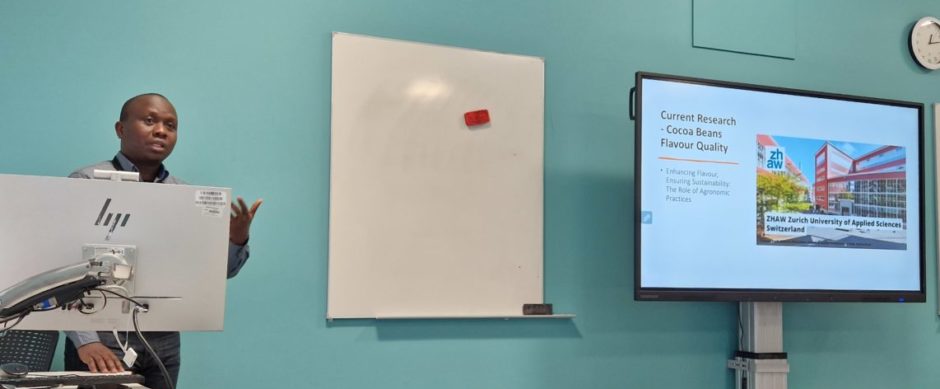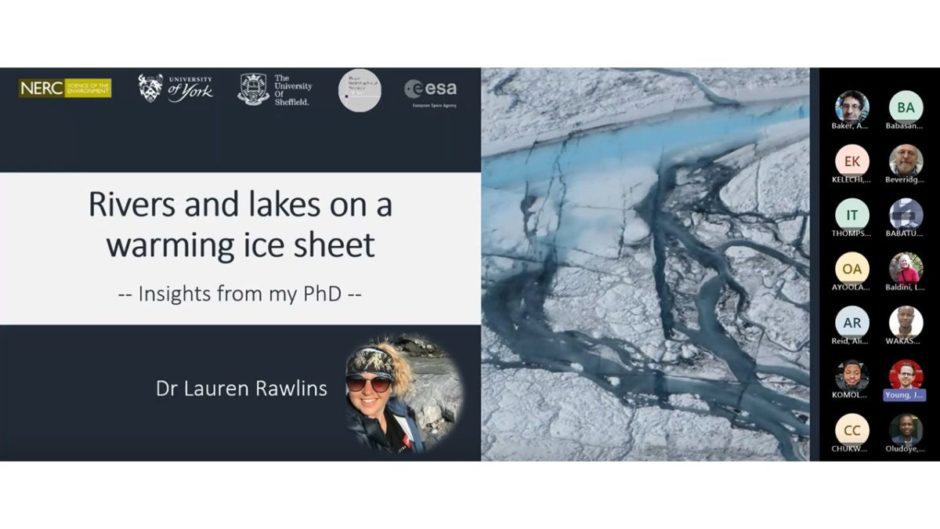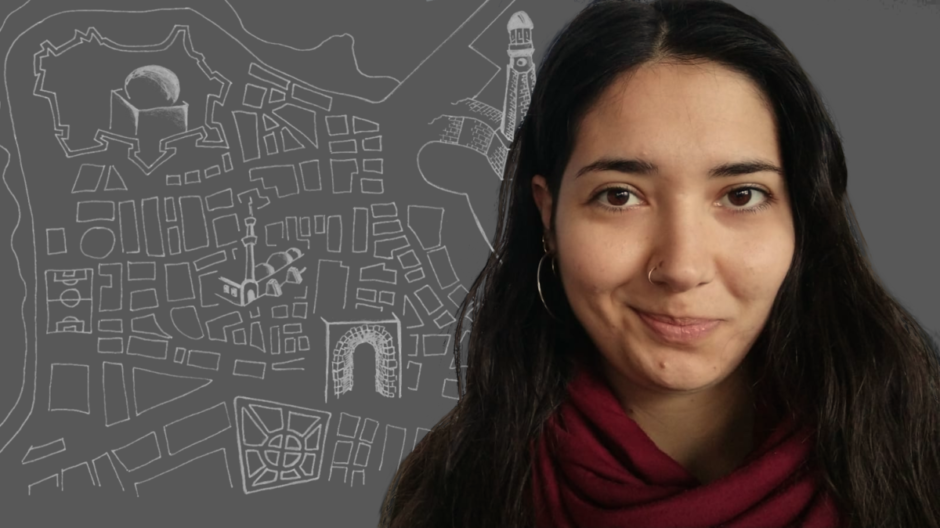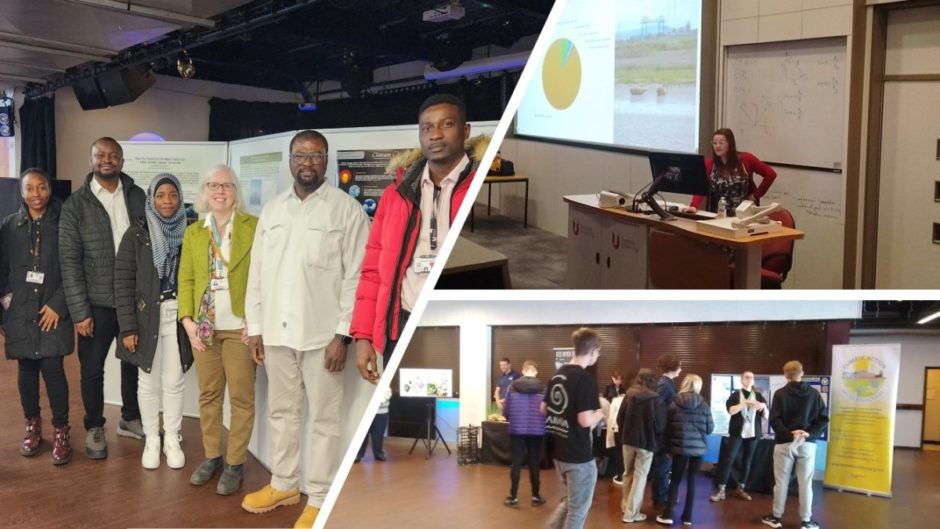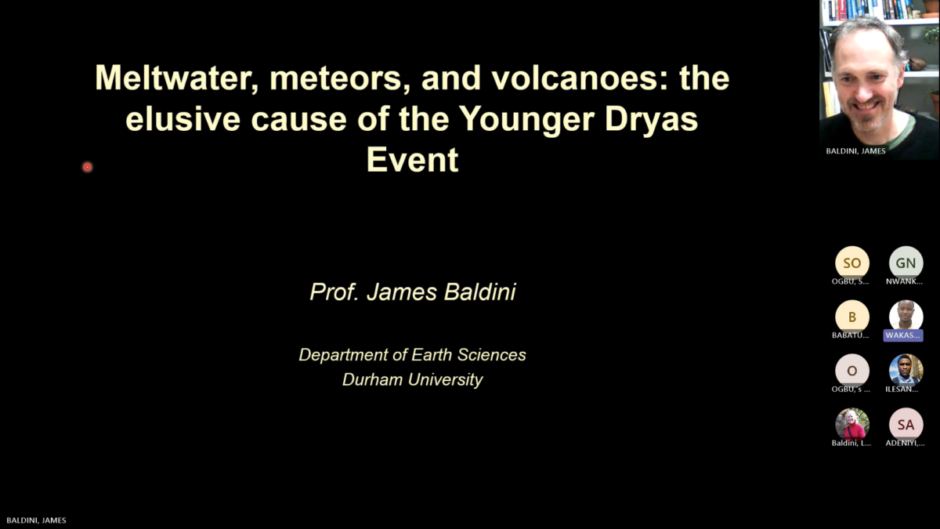On November 29, 2023, Environmental Research Society led by the MSc students hosted Dr Oluseye Oludoye. He presented on the topic titled “Sustainable Agriculture and Waste Management: A Path Towards Environmental Stewardship”. This presentation delves into the pivotal role of these interconnected practices in shaping environmental sustainability. In the pursuit of a sustainable and resilient future, the intersection of agriculture and waste management emerges as a critical nexus.
In the intricate dance of sustainable agriculture and waste management, individual behaviours become catalysts for change. He stated that our journey begins with understanding the symbiotic relationship between responsible agricultural practices and effective waste management.
Connecting the Dots: Sustainable agriculture is not merely a buzzword but a commitment to cultivating the land while preserving its essence. For instance, Dr Oluseye Oludoye’s research on pesticide safety behaviours among cocoa farmers underscores the significance of responsible agricultural practices (https://doi.org/10.1080/1059924X.2022.2148147). By embracing sustainable farming methods, we protect ecosystems, foster biodiversity, and ensure the health of our soil.
Agricultural Sustainability: The adoption of sustainable agricultural practices contributes to the reduction of greenhouse gas emissions. Through practices like agroecology, we not only grow our food but also nurture a climate-friendly environment. He noted that our choices in agriculture have a direct impact on mitigating climate change, ensuring a healthier planet for generations to come.
Reducing Carbon Footprint: Beyond mitigating climate change, sustainable agriculture plays a pivotal role in preserving biodiversity. By choosing sustainable practices, we become stewards of the planet, maintaining the delicate balance of ecosystems and ensuring the well-being of diverse plant and animal species.
Preserving Biodiversity: He encouraged the Environmental Research Society to serve as a beacon of change, empowering its members to drive transformative action. Armed with insights from our research at Earth and Environment Group, each member was encouraged to be an advocate for sustainable agriculture in their local communities. For example, by actively engaging in initiatives that promote responsible waste management, we sow the seeds of a greener future.
Empowering Change: He stated that the collective impact of individual choices cannot be overstated. Our call to action extends beyond personal behaviours to highlight the transformative power of united efforts. Through collaborative projects, advocacy initiatives, and global awareness campaigns, he emphasizes that every action, no matter how small, contributes to the global tapestry of sustainability.
Emphasizing Collective Impact: In concluding this exploration of sustainable agriculture and waste management, he reminded the society members that the choices we make today echo into the future. By embracing these practices, we cultivate not only a bountiful harvest but also a legacy of environmental stewardship for generations to reap. Let us, as members of the Environmental Research Society, be the custodians of change, nurturing a greener, more sustainable Earth for all. Together, we embark on a path towards environmental stewardship, one that honors the planet we call home.


